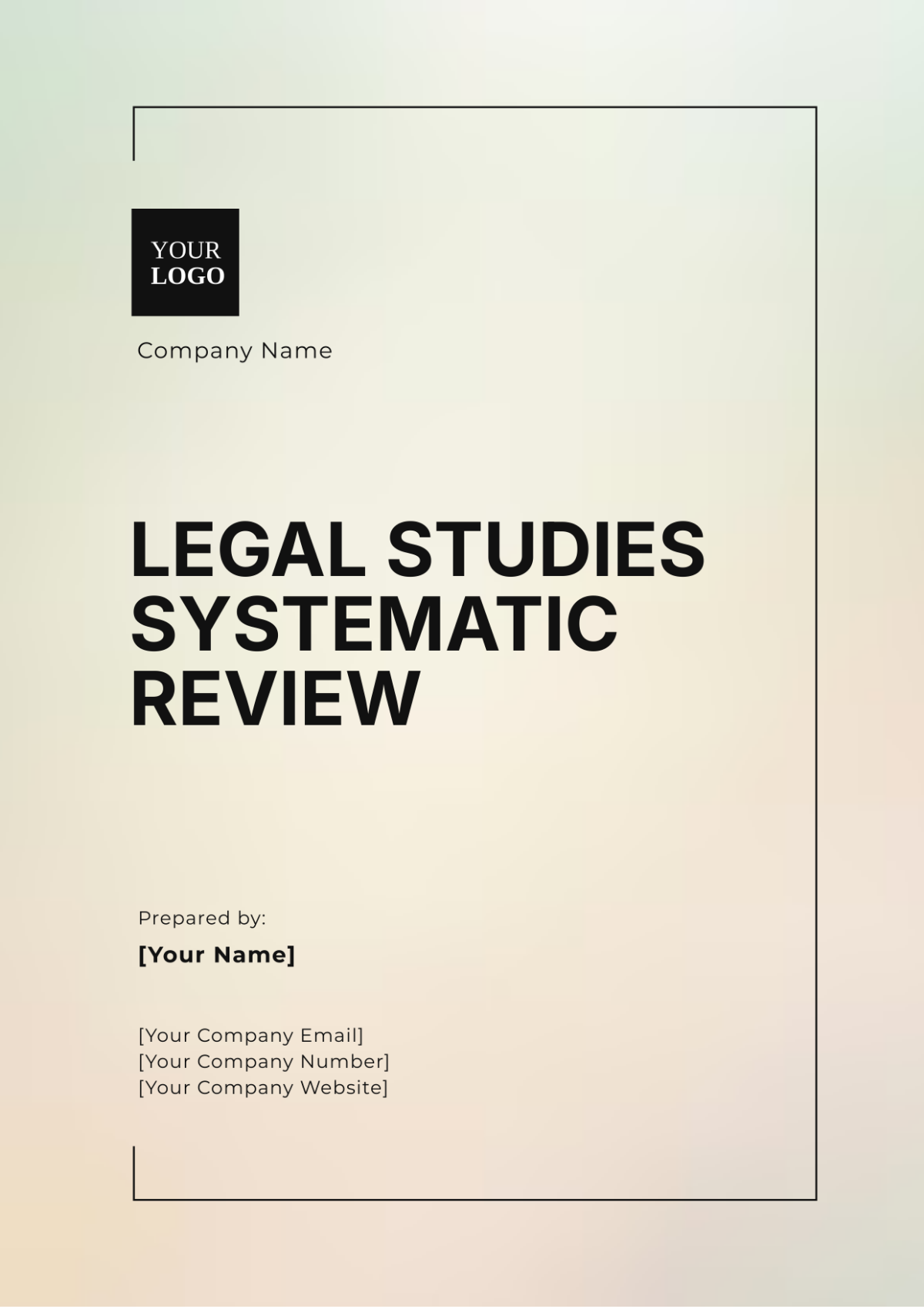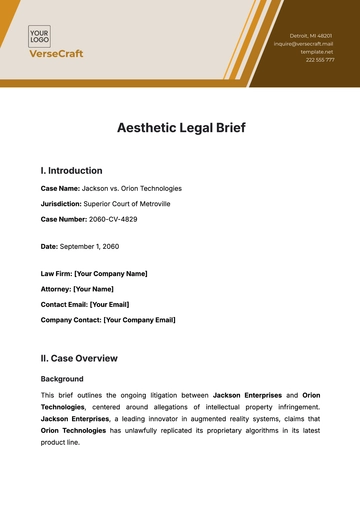Free Legal Studies Systematic Review

Title: Systematic Review of Jurisprudential Approaches to Environmental Law: Theoretical and Practical Perspectives
Introduction
This systematic review aims to critically assess existing research on jurisprudential approaches to environmental law. It explores various theoretical frameworks, evaluating their influence on legal practices and policy-making processes in environmental law. The review seeks to identify prevailing trends, theoretical debates, and implications for legal reforms.
Methodology
Search Strategy: A systematic search was performed across major legal databases including Westlaw, LexisNexis, JSTOR, and Google Scholar. Search terms included "environmental law," "jurisprudential theories," "legal theory," and "sustainable jurisprudence."
Inclusion Criteria: Peer-reviewed articles, books, and reports published between 2050 and 2083, specifically focusing on the application of jurisprudential theories to environmental law.
Exclusion Criteria: Articles not published in English, non-peer-reviewed sources, and studies lacking a clear connection to jurisprudential theory.
Data Extraction and Analysis: Data were extracted based on theoretical frameworks, methodological rigor, and impact on legal practice. A thematic analysis was conducted to synthesize findings and identify key jurisprudential approaches.
Results
Jurisprudential Approaches Identified:
Ecocentrism: This approach underscores the intrinsic value of nature, advocating for legal frameworks that prioritize ecosystem health and sustainability over human-centric benefits. Recent studies have shown a growing integration of ecocentric principles in national and international environmental policies.
Anthropocentrism: Emphasizes the role of environmental laws in advancing human welfare and economic development. The review found that anthropocentric approaches remain dominant in many jurisdictions, influencing resource management and regulatory practices.
Deep Ecology: Proposes a fundamental shift in human-environment relationships, calling for transformative changes in legal systems to ensure long-term ecological balance. The approach has influenced several radical legal reforms aimed at rethinking human impacts on the environment.
Trends: There has been a noticeable shift towards ecocentric and deep ecological perspectives in recent years, reflecting a broader societal concern for sustainability and climate change.
Discussion
Theoretical Implications: The review highlights the ongoing debate between ecocentric and anthropocentric approaches, with a notable trend towards integrating ecological concerns into legal frameworks. This shift reflects a growing recognition of the limits of traditional human-centered models in addressing complex environmental challenges.
Practical Implications: The findings suggest that jurisdictions adopting ecocentric or deep ecological approaches are more likely to implement comprehensive environmental protection measures. However, the effectiveness of these approaches varies, and empirical studies on their impact are limited.
Research Gaps: There is a need for empirical research to evaluate the practical outcomes of different jurisprudential approaches in diverse legal contexts. Further studies could focus on comparative analyses of jurisdictions implementing these theories.
Conclusion
This systematic review provides a comprehensive overview of jurisprudential approaches to environmental law, emphasizing the theoretical and practical implications of ecocentric, anthropocentric, and deep ecological perspectives. The review underscores the importance of continued research to assess the real-world impact of these approaches and to guide future legal reforms.
References
All referenced studies and sources are listed here under the appropriate legal citation guidelines, ensuring transparency and reproducibility in the review process.
- 100% Customizable, free editor
- Access 1 Million+ Templates, photo’s & graphics
- Download or share as a template
- Click and replace photos, graphics, text, backgrounds
- Resize, crop, AI write & more
- Access advanced editor
Simplify complex legal reviews with Template.net's Legal Studies Systematic Review Template. Fully editable and customizable, this template is designed for thorough legal analysis. Easily adapt the template using our Ai Editor Tool to ensure your review is accurate and well-structured.





























